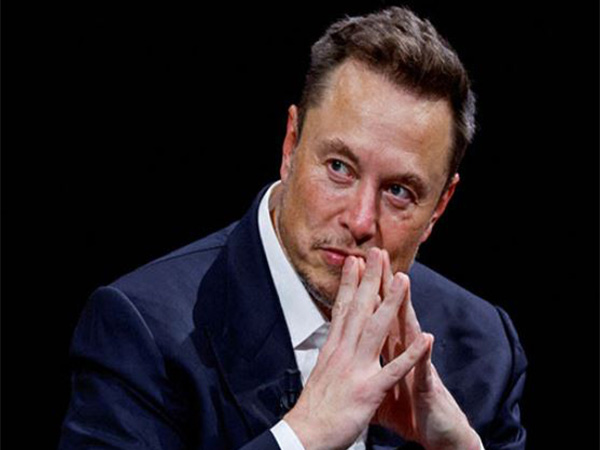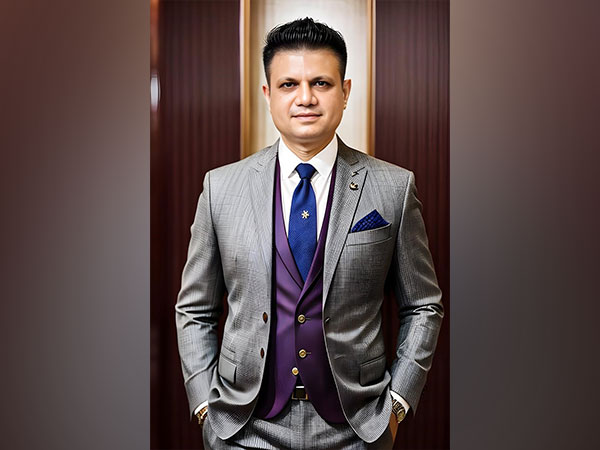Elon Musk's grip on tech and politics is getting stronger
Oct 26, 2024
San Francisco [US], October 26: For the world's richest man, running a business empire is not enough. Elon Musk, owner of some of the world's most prominent technology companies, including carmaker Tesla, social media platform X and aerospace company SpaceX, has also emerged as a visible player in politics.
As the US prepares to elect a new president in November, Musk has thrown his support behind the Republican candidate and former President Donald Trump, who has promised Musk a leadership role in an administration if he is reelected.
Musk has regularly been using the influence he wields through his companiesto weigh in on political debates in countries around the world, from Brazil to Germany.
The 53-year-old's intervention in politics, unprecedented in its openness and visibility, highlights how a few private tech companies and their executives hold increasingly unchecked power over decisions traditionally reserved for governments, digital rights experts warn.
"The kinds of technologies Musk operates are highly critical, and the companies he owns are incredibly influential and positioned at key junctures in terms of access to information and geopolitics," said Marietje Schaake, a fellow at Stanford University's Cyber Policy Center and author of The Tech Coup: How to Save Democracy from Silicon Valley.
"And Musk isn't just running these companies to maximise their success," Schaake, a former member of the European Parliament for the Dutch liberal Democrats 66 party, told DW. "He's also using them as tools for his own geopolitical agenda."
Since founding his first company in the mid-1990s, the South African-born entrepreneur has built a string of successful businesses and amassed an estimated fortune of more than $243 billion (€224 billion).
His talent for growing startups into leading technology companies has also given him increasing control over critical digital infrastructure and gradually helped expand his political influence.
Today, the US space programme NASA relies on Musk's astronautics company, SpaceX, to launch satellites. SpaceX subsidiary Starlink delivers broadband internet to some of the most remote places in the world and has become an indispensable tool for militaries in conflict zones from Ukraine to Gaza.
The geopolitical influence that comes with control of these technologies is illustrated by revelations from The Wall Street Journal: According to the paper, Musk has been in contact with Russian President Vladimir Putin since late 2022. Among other things, Putin asked Musk not to activate the Starlink satellite communications system over Taiwan as a favour to Chinese leader Xi Jinping, The Wall Street Journal reports.
With his acquisition of X, previously Twitter, in 2022, Musk also gained control over one of the most influential social media platforms.
At the same time, the entrepreneur, who once identified as a "moderate" on the political fringes, has increasingly aligned himself with hardline conservative positions, openly opposing left-leaning ideals he now views as detrimental to society's future.
Breaking with tradition
Musk's political involvement reached new heights in the buildup to the US election in November. After an assassination attempt in mid-July, Musk publicly endorsed Trump. Between July and mid-October this year, Musk contributed nearly $119 million to a super PAC supporting Trump, according to campaign finance reports.
Earlier this week, he drew attention by offering cash incentives to registered voters in seven swing states to sign a petition. Every day until the election, one signatory is selected at random and awarded one million dollars.
Such overt political involvement is unusual among US business elites. "The relationship between Musk and Trump brings into the open a level of influence that most business moguls prefer to keep under the radar," Schaake said. "Musk's actions seem to reflect that he believes he can do whatever he wants," she added, referring to Musk'y repeated attempts to insert himself into other countries' political debates.
What if Trump wins?
What's becoming evident is that these efforts are also aimed at positioning Musk for greater access and influence if Trump is reelected in November.
"It's well-imaginable that he's going to want certain commitments from Trump on foreign policy as it relates to his businesses," Schaake said.
A first glimpse of this potential influence was offered in late September: Trump's running mate, JD Vance, suggested that the US might reconsider its support for NATO if the European Union moved forward with regulations targeting social media platforms, specifically Musk's X. The EU is currently investigating X for potential violations of new online platform regulations, which could lead to substantial fines.
This concentration of power over critical digital infrastructure poses to a risk to democracy, cyber policy expert Schaake warned.
"Musk is unpredictable; his positions can change overnight," she said. "And when someone who controls significant products and infrastructure changes his mind, the consequences are also significant."
Source: Times of Oman








